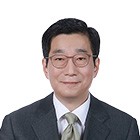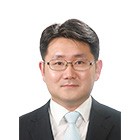Video
Publications
Issue Briefs
Publications | Issue Briefs
Kim Jong Un’s Attendance
at China’s Victory Day Parade
and the Outlook for DPRK-China-Russia Relations
Cha Du Hyeogn, Lee Dong Gyu
5,0862025.09.10
Kim Jong Un’s attendance at China’s Victory Day parade reflects multiple objectives from Pyongyang’s perspective: mending ties with Beijing that had lagged behind its relationship with Moscow, pressuring Russia for stronger support, and showcasing trilateral solidarity with China and Russia to enhance bargaining leverage against the United States. Domestically, Kim sought to highlight his achievement of elevating North Korea into a “strategic state” that stands alongside major powers, while externally aiming to stir concerns in South Korea that ROK-U.S. and trilateral security cooperation with Japan might only worsen inter-Korean hostility. For China, the invitation served to demonstrate DPRK–China–Russia alignment as a tool in its rivalry with Washington, reaffirm Beijing’s influence over Pyongyang, and counter U.S.-led security cooperation in the region, with the added aim of constraining Seoul’s reinforcement of the ROK-U.S. alliance.
In response, South Korea should strengthen the ROK-U.S. alliance and sustain ROK-U.S.-Japan trilateral security cooperation, thereby enhancing leverage vis-à-vis China and Russia and creating conditions for future engagement with them. South Korea must stress that ROK-U.S.–Japan cooperation is not hostile to specific regimes but a response to actions undermining the international and regional order. Vigilance is needed against the possibility that China or Russia may tolerate or even support North Korea’s nuclear program; to prevent the normalization of North Korea as a nuclear weapons state, South Korea should emphasize both the direct threat to the peninsula and the risk of collapse of the global nonproliferation regime. Coordination with Washington should also ensure that sanctions relief or overly rapid U.S.–North Korea rapprochement is avoided, while reaffirming the shared goal of “Complete Denuclearization of North Korea” and pressing for visible extended deterrence measures such as tactical nuclear redeployment. Finally, South Korea and the United States should develop joint responses to new types of provocations—such as potential KADIZ incursions—used by Pyongyang to exploit trilateral cooperation.
This article is an English Summary of Asan Issue Brief (2025-28).
('김정은의 중국 전승절 참석과 향후 북-중-러 관계 전망’)

Cha Du Hyeogn
Vice President, Principal Fellow, Director
Dr. Cha Du Hyeogn is a North Korea Study expert who has shown various research performances on North Korean Politics and Military, U.S.-ROK Alliance, and National Crisis Management, etc. He is the Principal Fellow of Asan Institute for Policy Studies, holding an additional post as Visiting Professor of Graduate Institute of Peace Studies in Kyung Hee University. He also has served as Adjunct Professor of University of North Korean Studies (2017~2019), Senior Foreign Affairs Advisor to the Governor of GyeongGi Provincial Government (2015~2018), Visiting Scholar of Korea Institute for National Unification (2015-2017), the Executive Vice President of the Korea Foundation (2011~2014). Before these careers, he was also a Research Fellow at the Korea Institute for Defense Analyses (KIDA, 1989~2012) and the Acting Secretary for Crisis Information to the ROK President Lee Myung Bak (2008). He has worked more than 20 years in KIDA as various positions including Director of Defense Issues Task force (2005~2006), Director of Arms Control Researches (2007), Director of North Korea Studies (2009). Dr. Cha received his M.A. and Ph.D. degree of Political Science from Yonsei University. He has written more than 100 research papers and co-authored books on diverse fields of security and International relations. He has advised for various governmental organizations.
view more
Lee Dong Gyu
Research Fellow, Director
Dr. LEE Dong-gyu is a research fellow at the Asan Institute for Policy Studies. Dr. Lee received his B.A. and M.A. from the Hankuk University of Foreign Studies, and Ph.D. in politics from Tsinghua University in China. His research focuses on Chinese politics and foreign policy, South Korea-China relations, and Northeast Asia security. His recent publications include “The Belt and Road Initiative after COVID-19: Implications of Expanding Health and Digital Silkroads,” “Is Political Reform of the Chinese Communist Party Going Back: Changes and Durability of Intra-democracy in the Xi Jinping Era,” “Xi Jingping Thought from the Perspective of the Chinese Communist Party’s Ideological Strategy,” “Development Factors and Specificity of Korea-China Relations in the Cold War Era: 1972-1992,” “A Study on the Sinicization of Marxism after Reform and Opening Up,” etc.
view more


